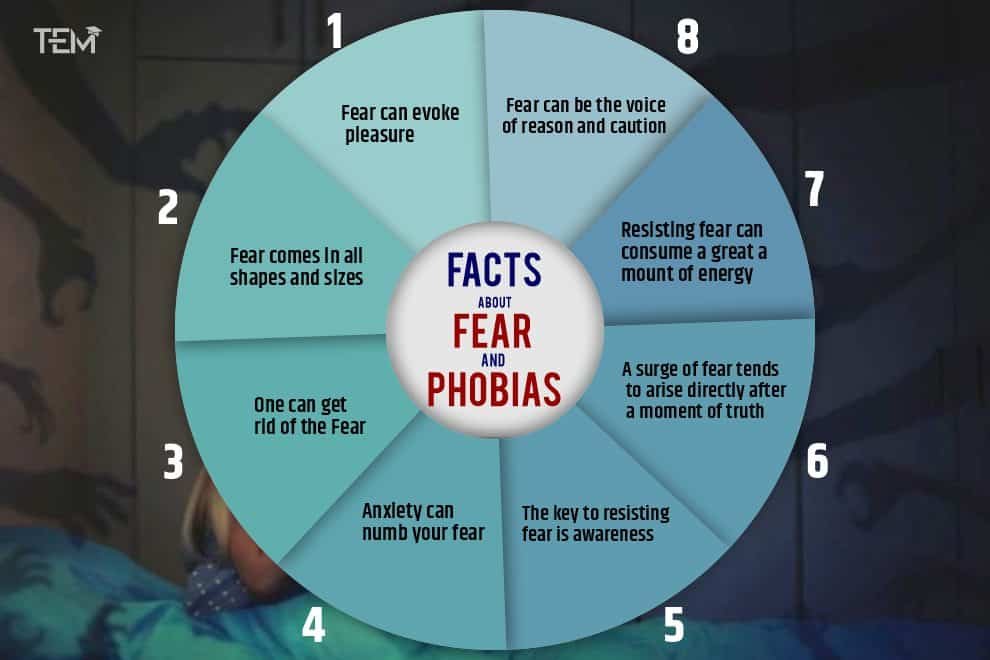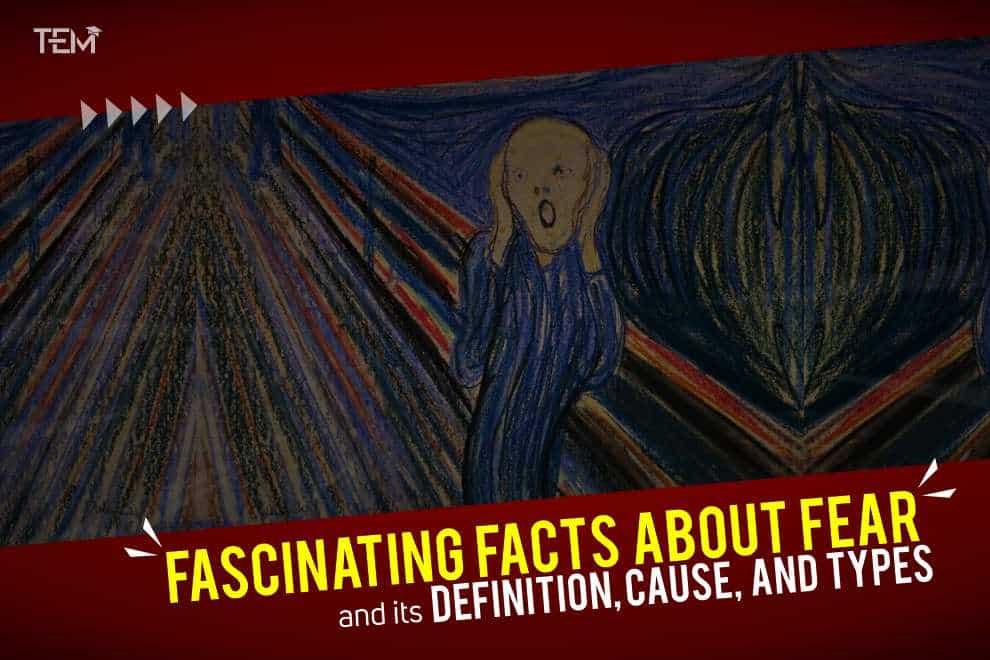“Fear . . . For the gazelle, fears of being eaten. For the lion, fear of starvation. Fear is the chain that binds them together.” This line is as true as it sounds fictional from “The 5th Wave,” aren’t we all just scared children who ran into adulthood, trying to work our fears out as we pass by? Many Clinical Psychologists like to believe that fear is our survival response, for some its good or bad, and for some its pleasure or even business. For me, it was the fear of failure, as my fingers stopped themselves from parading on the keyboard. Even though my mind was twirling with ideas wrapped in the fear of misconceptions. However, I was not alone as 21.9% of adults had a serious impairment, whereas 30.0% had a moderate impairment, and 48.1% had mild impairment. Reading these “Facts about Fear” will help you better understand fear and the way it affects you.
What Exactly is Fear?
Imagine you are walking in a park on a beautiful evening, there is music in your ears and suddenly a bear jumps in front of you. You are left with not many options than to fight or flight. An almond-shaped nucleus in the temporal lobe of the brain known as the amygdala triggers at this point which will prepare the body for its response. The amygdala is also the main culprit for all the stress you feel. This brings us to the conclusion that “fear is physical.” It is a primitive human response that provokes an emotional as well as a physiological response.
Don’t be a Gump and start Running
Running away from your fear does not work in fact, it makes your fears worse. The right thing here is to turn around and face it. As you walk through this storm of ghosts in the darkness, you will come out as a new person as if you were reborn. Understanding these facts about fear and analyzing how your phobias work will help you live a better life with happiness and with less fear.
Facts about Fear and Phobias

1. Fear can evoke pleasure
Sometimes even when we know that certain things will lead to frightening or stressful moments, we still dive head first knowing the circumstances. Whether it is a ride on a roller-coaster, haunted houses, and even a horror movie, its thrilling emotion stays for a long time. The body and brain remain aroused even after the experience is over, as suggested by the excitation transfer theory. During a staged fear experience, your brain will produce dopamine, which elicits pleasure. Thus using fear as a way to feel pleasure.
2. Fear comes in all shapes and sizes
Fear is nothing but an inherently unpleasant experience. Such experiences have a broad range from mild to paralyzing. Your ranking on this scale can be defined by the way fear affects your day-to-day life. As some fearful events can leave a permanent mark on your brain, ignorance is not an option. Conquering fear does require medical help.
3. One can get rid of the Fear
One of the most resourceful facts about fear is that it can be eliminated with a process called fear extinction. It is a decline in conditioned fear responses (CRs) followed by nonreinforced exposure to a conditioned stimulus (CS). In simple words, fear is reduced by creating non-fearful memory associations.
4. Anxiety can numb your fear
One might expect people with anxiety disorders, phobias, or post-traumatic stress disorder(PTSD) to have an extreme response to fear or stressful situations. Though that is not true, people with an anxiety disorder might have a very normal reaction to fear in scary situations.
5. The key to resisting fear is awareness
Directly experiencing fear in a scary moment and recognizing physical sensations and thoughts can help you strengthen your awareness and flee your fears. This brings us to the conclusion that resisting fear can help us strengthen it by using awareness as a tool.
6. A surge of fear tends to arise directly after a moment of truth
There is something you always wanted to do but soon your mind is filled with reasons why you can’t or shouldn’t do it. Remember this is the fear inside you that has been keeping you from trying whatever you desire. The trick is to just go on and take the leap anyway.
7. Resisting fear can consume a huge amount of energy
Fighting fear can be dreadful and tiring as it takes a lot of courage to do so. But once you do it, there is nothing more relaxing and peaceful feeling. You open yourself to creativity, wonder, awe, love, beauty, and inspiration.
8. Fear can be the voice of reason and caution
It is not necessary that fear can always have an adverse effect on you. Sometimes fear can also be the voice of reason and caution, and that practicality serves you well.
What is Phobia?
If a particular object or situation provokes fear or causes distress in the sufferer, then that distinct fear or anxiety is called Phobia. People with specific phobias generally know the irrationality of their fear and yet cannot overcome it.
Specific Phobias and their types

It is an intense yet irrational fear of something that may cause little or no fear at all. Common in adults, even thinking about their phobia of objects or specific situations can cause severe anxiety symptoms. About 9.1% of U.S. adults had a specific phobia in the past year and 12.5% of adults experienced a specific phobia at some time in their lives.
- Situational fears: Fear of flying (aerophobia), fear of closed spaces (claustrophobia), or fear of public speaking (glossophobia)
- Fears of the natural environment: It includes fire (pyrophobia), heights (acrophobia), or dark (nyctophobia)
- Fears of animals: Fear of animals like spiders (arachnophobia), bugs (insectophobia or entomophobia), and dogs (cynophobia) known as zoophobias.
- Fear related to blood: It is also known as hemophobia which includes fear of needles (trypanophobia).
Final Thought
There are all kinds of fear in this world, even fear of fear (Phobophobia). How you deal with it and how much it affects you matters. Fear can be your ally and enemy too, it can cut your wings down and shatter your dreams trapping you inside it, or fear can push and motivate you to achieve new things in your life. According to Stephen King – “Fear is the emotion that makes us blind,” whereas Martin Luther King quotes, “fear is a major cause of war and prescribes love as its remedy: Only love, understanding, and organized goodwill can cast out fear.”Stephen’s fear is a blind and irrational emotion whereas the fear of Martin Luther King causes war and can be simply cured with love. We hope all these causes, cures, and definitions of fear will help you understand more about yourself, and these facts about fear will help you to build a fearless future.
ALSO READ: 7 Eruptive Facts About the World’s Most Active Volcanoes You Didn’t Know










